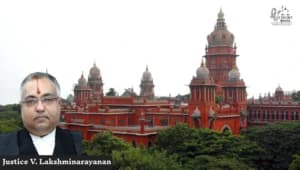The Delhi High Court on Wednesday dismissed an appeal filed by a man who had questioned the validity of his marriage on the ground that the customary Hindu ritual of Saptapadi (seven steps around the sacred fire) was not performed.
The bench, comprising Justice Anil Kshetarpal and Justice Harish Vaidyanathan Shankar, upheld the order of the Family Court that had already refused to annul the marriage.
Background
The husband had approached the court under Section 19 of the Family Courts Act, 1984. He claimed that his marriage to the woman, solemnised on June 19, 2016, was incomplete and therefore invalid since the crucial Saptapadi ritual was not conducted.
According to him, the couple lived together only until October 2016, though a daughter was later born out of the relationship. The wife, however, maintained that all necessary ceremonies, including Saptapadi, had been duly performed and that she was forced out of her matrimonial home in 2017.
Earlier, the Family Court at Karkardooma had dismissed the husband's plea, ruling that his evidence was insufficient. Dissatisfied, he filed an appeal before the High Court.
Read also:- Delhi High Court Orders Husband to Pay ₹2 Lakh Monthly Maintenance to Wife and Son After Matrimonial Dispute
Court's Observations
The High Court noted that the husband had stepped into the witness box and repeated his claim that the Saptapadi was not conducted. However, he did not bring forward any supporting witnesses - such as the priest, family elders, or guests - to corroborate his version.
Quoting from the Hindu Marriage Act, the bench explained that Section 7 gives freedom to solemnise a Hindu marriage according to the customary rites of either party.
"Performance of Saptapadi is not an indispensable requirement in every case," the judges clarified.
Read also:- Delhi High Court Grants One Last Chance for Cross-Examination in Property Dispute, Imposes Rs.50,000 Cost
The court also recalled the legal presumption in favour of marriage. Referring to a Bombay High Court precedent, the bench stressed that when a couple has lived together and a child is born from the union, the law strongly presumes the marriage to be valid and the child legitimate.
"The presumption of a valid marriage is not to be repelled lightly," the court remarked.
Rejecting the argument about the missing marriage album, the Judges observed,
"Even if such an album were produced, it could not conclusively prove whether Saptapadi was performed."
Decision
After considering the submissions, the bench refused to interfere with the Family Court's decision.
"The burden of proof was on the appellant to establish that no Saptapadi was performed. He failed to discharge this burden," the court observed.
Concluding that the Family Court's ruling was 'plausible and possible,' the bench dismissed the husband's appeal.
With this, the marriage between the parties stands legally valid, and the Family Court's order remains intact.
Case Title: X and Y














